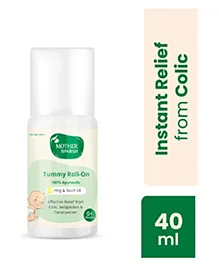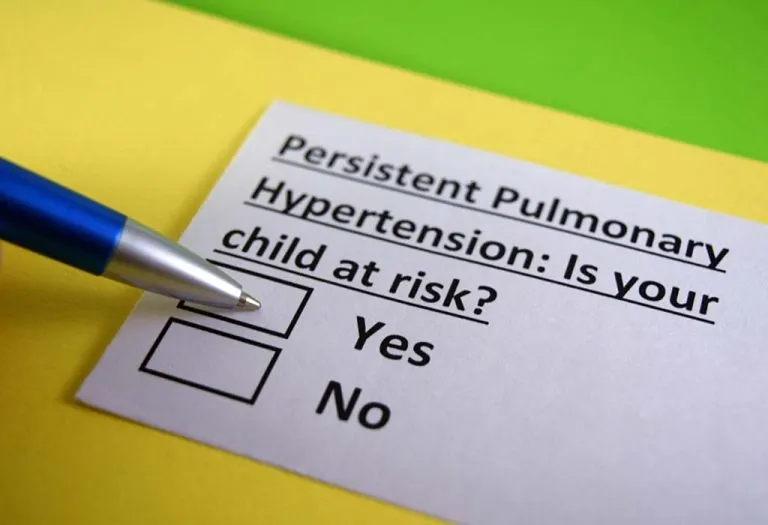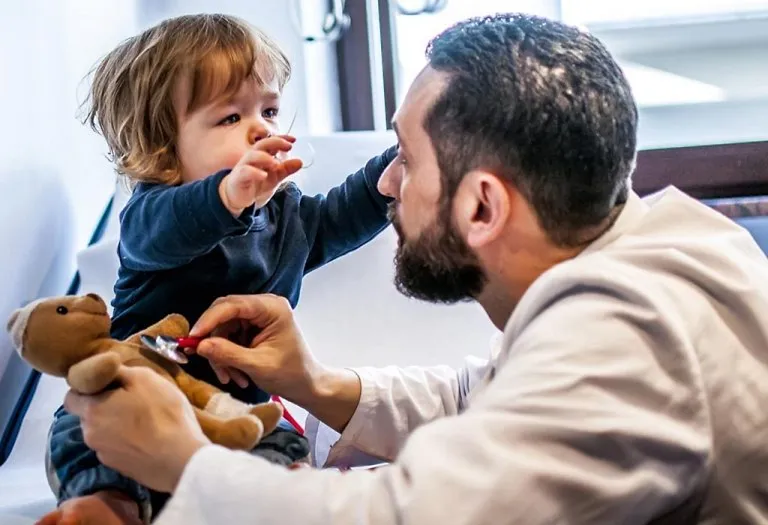Baby Farts – Causes and Remedies

Flatulence, commonly known as farting, is a completely natural bodily function, and it can result from various factors, ranging from the straightforward to the intricate. Despite its prevalence, farting in babies doesn’t necessarily indicate illness; rather, it signals the release of trapped gas. Understanding the reasons behind infant flatulence is crucial for parents. This article delves into the causes of baby flatulence. By exploring these aspects, parents can better comprehend their baby’s digestive processes and foster a more comfortable and contented experience for their little ones. In this article, we talk about the reasons babies fart and ways to reduce the formation of gas in their little tummies.
Is It Normal for a Newborn to Fart a Lot?
Does your newborn fart a lot? Then know that it is normal for a newborn to fart frequently. Newborns have immature digestive systems, and gas is a common byproduct. It’s typically not a cause for concern unless accompanied by other symptoms like excessive crying or signs of discomfort.
Why Do Babies Fart?
Parents are often worried when their babies fart a lot. They fear that their baby is farting as a result of some medical issue. However, it is said that passing out gas is a good thing since gas lodged inside could result in the baby having a stomach ache or suffering from colic. There are many causes of excessive farting in babies. Some of the reasons why babies fart are listed below.
1. Aerophagia
Swallowing of air or aerophagia is a common cause of gas in the system. The air that babies swallow during eating, drinking, laughing and crying leads to the accumulation of gas in the stomach.
2. Undigested Food
Undigested food can also lead to gas getting accumulated. Babies also get gassy when mothers who breastfeed do not watch their diet and eat anything that encourages gas formation.
3. Hyperlactation Syndrome
A mother may produce a large amount of foremilk if she has an abundant supply of milk. Since foremilk is high in water content and lactose, it causes stomach cramps in babies. Moreover, the baby takes in a lot of air while taking the quickly flowing milk making the baby gassier. The baby also tends to feed more when he does not get enough of the rich hindmilk. This causes more weight gain for the baby and results in flatulence.
4. Over-Stimulation
When sensitive babies get stressed due to loud noise, lights, touch, strangers or visitors, it results in over-stimulation. This makes them gassy, and cranky too. They could also have difficulty sleeping later in the day or night. Some children who have an intense brain-intestine/brain-gut connection are more prone to an upset stomach.
5. Introduction of Solid Food
Babies need time to transition from breast milk to solid food. This is because the different probiotics and enzymes that aid in digestion and absorbing nutrients take time to build up. Thus, when babies are introduced to solid foods, their stomachs accumulate gas, and they fart.
6. Overeating
When babies overeat, it affects their body’s gastrocolic reflex more. This disturbs the digestive system and upsets the baby’s stomach regardless of what he eats. Overeating can also disturb the body’s supply of essential digestive enzymes which help in breaking down a large amount of food, undigested proteins, starch, and fat. This stops the body from processing nutrients and eliminating waste. As a result, there is a formation of gas.
7. Lactose Intolerance/Transient Lactose Deficiency
Lactose intolerance in a baby may also cause gas. It develops when the baby’s body is unable to produce enough lactase to break down sugars like galactose and glucose. Thus, unbroken lactose travels to the large intestine, ferments, and is converted into gas.
8. Incorrect Breastfeeding Postures
When the baby is unable to latch properly, it may cause him to swallow a lot of air. This air forms bubbles in the intestines causing excessive gas. To help the baby come out of this condition, the mother can switch between breasts while feeding or place the baby in a vertical position while feeding.
What Are the Repercussions of Infant Farting?
There is nothing abnormal about a gassy baby. The baby’s underdeveloped digestive system is unable to tackle the digestion process, which results in gas formation. This is not the sign of an underlying medical problem. However, if the baby has an inflated stomach and cries incessantly, it could be due to the resultant pain. If this is accompanied by fever, fussiness, and problems in urination, it can be a sign of some health issue. Apart from these signs, if your baby is constipated along with being gassy, has blood in his stools, is continuously vomiting, and has a fever or rectal temperature of 101 degrees or above, you should consult a paediatrician.
Tips to Ease Your Baby’s Farts
If your baby farts all the time, it could mean that he is way too gassy than he should be. Flatulence affects all babies at some time or the other. However, there are some simple tips you could follow to ease your baby’s farts.
1. Rubbing the Baby’s Belly
Massage your baby’s tummy gently in clockwise circular movements from the right side under the ribs to the left side. This will allow the gas bubbles to move along the digestive tract.
2. Burping
After every feed, make your baby burp by patting his back gently. Again before switching breasts or in the middle of a bottle feed, gently rub your baby’s back and pat his back to make him burp as it helps eliminate gas.
3. Pedalling
This technique, known as the bicycle legs, does wonders in eliminating gas. First, place your baby on a firm surface. Then hold the baby’s feet and slowly make them go back and forth in a pedalling motion. Then bend your baby’s legs towards his chest. Repeat the actions a few more times throughout the day, but remember never to do it just after a feed.
4. Frog Kick
Place your baby on the floor. Then holding his lower legs, gently move them in slight clockwise rotations, from the chest to the right hips, to the knees, to the left hips, and back to the chest. Ensure the movement is gentle, and do not overstretch the baby’s legs. Then slowly stretch the legs upright and lift the baby’s bottom about an inch off the floor. Lastly, finish off by bending his knees and bringing them towards his chest.
5. Other Exercises
If ‘pedalling’ and ‘frog kick’ does not help, then you can try a few more exercises to do the trick –
- Toe to Nose Stretch – Hold your baby’s ankles and stretch his legs upright. Then, gently try to touch his toes to his nose. This stretch puts some pressure on the baby’s stomach and helps relieve the accumulated gas.
- Toe to Shoulder – If you are unable to touch your baby’s toes to his nose, you may try this technique instead. Hold the ankles and gently stretch the baby’s legs straight. Then lift them up, and try to touch his shoulders. You can also try out the criss-cross version by touching the left side toe to the right side shoulder and the right side toe to the left side shoulder.
- Toe to Hip – For this exercise too, gently stretch your baby’s legs first. Then slowly bring them both to one side of the hips and then take them to the other side.
- Tummy Time – Tummy time is not only important in strengthening a baby’s upper body but also helps in passing out gas that is lodged in his stomach. All you need to do is put your baby on his tummy for at least 20 minutes every day. You may use a soft mat if you are placing him on the floor or use the bed instead. Either way, don’t leave the baby alone and put him on his back again after 20 minutes. You may do this exercise a couple more times during the day.
- Rocking and Bouncing – Rocking and bouncing may help your baby in eliminating gas. This exercise can be done for babies who do not need neck support and have started bouncing already. Hold your baby on a bed or on a cushioned floor and gently bounce him or hold him. If the baby cannot do this exercise, you may hold him in your arms and rock him. You may also use a rocking chair for rocking your baby back on forth. As you sit in the chair, hold the baby close to your chest, in a vertical position and gently rock back and forth. You may also rub or pat his back in between to help relieve the gas accumulated in your baby’s stomach.
5. Probiotics
In the case of older babies, who consume solid foods for most of their meals, you could consider giving probiotics. You may also choose to give your baby a small portion of curd if you do not wish to get the over-the-counter probiotics. Probiotics can cure colic by relieving gas and helping to maintain good bacteria in the baby’s digestive system.
6. Babywearing
Pain due to gas gets more severe when the baby lies on his back. In order to avoid that, try babywearing wraps. These wraps allow you to hold the baby close to you upright and are a great way to get the gas down and out.
7. Warm Compress
Applying a warm compress to your baby’s tummy can provide relief from gas. Use a warm water bottle wrapped in a towel or a gentle warm cloth. Ensure it’s not too hot, and place it on your baby’s abdomen for a few minutes.
8. Modify Feeding Techniques
Adjusting how you feed your baby can impact gas. If breastfeeding, ensure a proper latch to minimize air intake. For bottle-fed babies, choose bottles with anti-colic features and use a slow-flow nipple to reduce the intake of air during feeding. Additionally, try keeping your baby in a more upright position during and after feeding to aid digestion and reduce gas.
Some home remedies could also help treat flatulence in babies. You may combine these with the exercises given above. Let’s take a look at them.
Home Remedies for Treating Gas in Babies
You may also try some of these home remedies to help relieve your baby’s gas –
1. Asafoetida Rub
You already know about rubbing or massaging your baby’s tummy. This remedy is the same, but you use a teaspoon asafoetida mixed in warm water to massage the baby’s tummy. The paste can also be applied to the baby’s belly button. Just leave it one for a few minutes and wipe it off with a washcloth.
2. Warm Water Drink
If your baby is old enough to drink water, you may give him some warm water to drink after every meal. Warm water soothes the stomach, the guts and also eases digestion in babies.
3. Warm Bath
A warm bath helps in relaxing and soothing the baby’s stomach and guts. Take some warm water in your baby’s bathtub and submerge his lower body. This remedy can help treat constipation in children and also soothe the discomfort caused by gas accumulation in the stomach.
4. Gripe Water
Gripe water, a mixture of herbs and water, is a traditional remedy known for its ability to ease gas and stomach discomfort in babies. Consult with your pediatrician before using gripe water, and follow the recommended dosage.
5. Fennel Seed Tea
Prepare a mild fennel seed tea by steeping a teaspoon of fennel seeds in hot water. After cooling, give a small amount to your baby (if they are old enough to consume liquids other than breast milk or formula). Fennel is believed to help alleviate gas and aid in digestion.
When to See a Doctor?
If you notice your baby farting more than usual, it’s generally not a cause for concern as it’s a normal part of their digestive process. However, there are instances when excessive farting may signal an underlying issue. Consider consulting a healthcare professional if:
- Your baby is in pain or discomfort during or after farting.
- Excessive crying accompanies the increased farting, indicating potential distress.
- Changes in the color or consistency of your baby’s stools are observed.
- Farting is accompanied by signs of bloating or a distended abdomen.
- Your baby experiences weight loss or difficulty in feeding.
FAQs
1. Is It Normal for Your Baby to Cry When Farting?
Yes, it is normal for a baby to cry when farting, especially if they are experiencing discomfort due to trapped gas. Crying during farting is often a temporary phase and is part of the natural development of their digestive system.
2. How Many Times in a Day Do Babies Fart?
The frequency of a baby’s farting can vary, but on average, babies can pass gas multiple times a day. It is considered normal for a baby to fart anywhere from 10 to 20 times per day.
3. Does a Breastfed Infant Fart More Than a Formula-Fed Infant?
Yes, breastfed infants tend to fart more than formula-fed infants. Breast milk is easier to digest, resulting in more frequent bowel movements and gas. Formula-fed babies may have fewer but smellier farts due to the composition of formula.
4. Does Excessive Farting Reduce as Baby Grows?
Yes, as a baby’s digestive system matures, excessive farting typically reduces. As they grow, their digestive organs become more efficient, and the frequency of gas production tends to decrease. However, individual variations are normal, and some babies may continue to be gassy. If there are concerns, consulting a pediatrician is advisable.
These are a few ways you can help ease your baby’s discomfort due to accumulation of gas and reduce flatulence. If your baby’s farting a lot or if your baby’s farts smell, as a parent, you need to remember that every baby is different. While one tip may prove to be beneficial for a baby, it may not be that helpful for the other. Also, the activities given above are better done a few hours after every meal. Just ensure, all the movements are gentle, and you have fun, especially while doing the exercises. This might just be another way for you to bond with your baby.
References/Resources:
1. Infant Allergies and Food Sensitivities; American Academy of Pediatrics; https://www.healthychildren.org/English/ages-stages/baby/breastfeeding/Pages/Infant-Allergies-and-Food-Sensitivities.aspx
2. Colic; Mayo Clinic; https://www.mayoclinic.org/diseases-conditions/colic/symptoms-causes/syc-20371074
3. What should I do if I think my baby is allergic or intolerant to cows’ milk?; NHS UK; https://www.nhs.uk/common-health-questions/childrens-health/what-should-i-do-if-i-think-my-baby-is-allergic-or-intolerant-to-cows-milk/
4. Sferra. T, Heitlinger. L; Gastrointestinal gas formation and infantile colic (Pediatric Clinics of North America); National Library of Medicine; https://pubmed.ncbi.nlm.nih.gov/8614612/; April 1996
5. How Can I Tell If My Baby Is Constipated?; American Academy of Pediatrics; https://www.healthychildren.org/English/ages-stages/baby/diapers-clothing/Pages/Infant-Constipation.aspx
6. Constipation Treatment for Infants and Children; The University Of New Mexico; https://hsc.unm.edu/medicine/departments/pediatrics/divisions/continuum-of-care/pdf/constipation-treatment-infants-children.pdf
7. Passing wind or flatulence; raisingchildren.net.au; https://raisingchildren.net.au/guides/a-z-health-reference/wind
8. Infante. D, Segarra. O, Luyer. B; Dietary treatment of colic caused by excess gas in infants: Biochemical evidence (World Journal of Gastroenterology); National Library of Medicine; https://www.ncbi.nlm.nih.gov/pmc/articles/PMC3084395/; April 2011
Also Read:
Wind in Babies
Baby Throwing Up Mucus
Massaging Techniques for Baby to Relieve Gas
Common Baby Digestive Problems That You Need To Know
Was This Article Helpful?
Parenting is a huge responsibility, for you as a caregiver, but also for us as a parenting content platform. We understand that and take our responsibility of creating credible content seriously. FirstCry Parenting articles are written and published only after extensive research using factually sound references to deliver quality content that is accurate, validated by experts, and completely reliable. To understand how we go about creating content that is credible, read our editorial policy here.




























.svg)


















